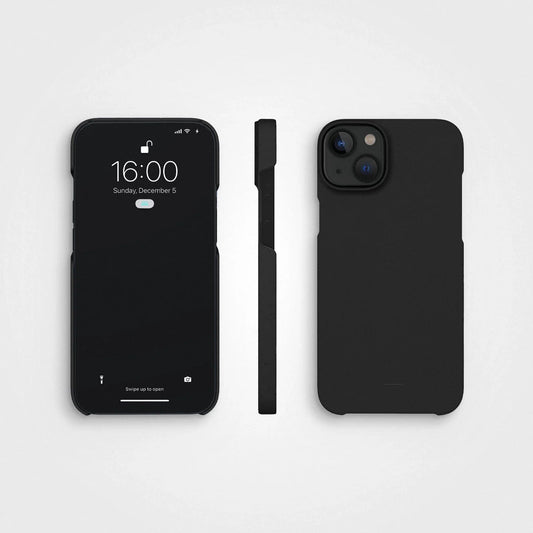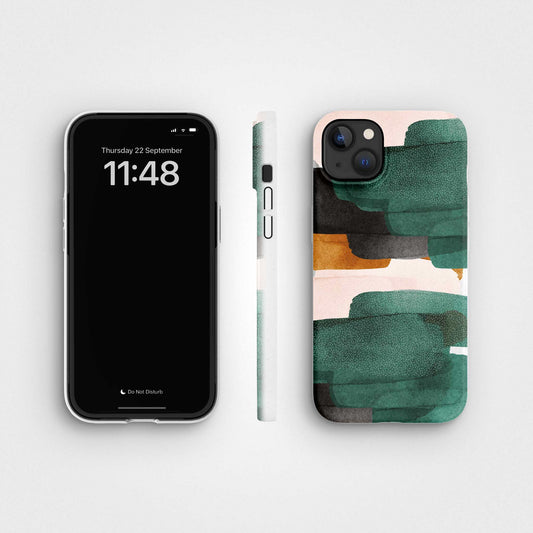As part of our offering of sustainable everyday essentials and eco-tips, we turn our attention to the bathroom. With a growing emphasis on environmentally conscious choices, transforming your bathroom into an eco-friendly haven has never been more essential. Here are some easy ways to save money, swap out plastic, and lower your carbon footprint whilst remaining so fresh, so clean.
Quick links
Showering over bathing
Sometimes a luxurious bath is what’s needed after a long day. But, if you just want to freshen up a bit then showering uses less water and energy to heat it, saving on bills and lowering your carbon footprint. The optimum shower length for your skin, and environment, is five minutes and definitely no more than ten. Additionally, incorporating mindful showering habits, such as turning off the water while soaping up, can make a significant difference in water conservation.
If you’re feeling brave, try a cool or cold shower for extra savings. Cooler showers have also been found to be better for your skin, as they can boost circulation and invigorate your senses, providing a revitalizing start to your day.

You could take your eco-friendly efforts a step further by investing in a low-flow showerhead. These innovative fixtures reduce water flow while maintaining adequate water pressure, giving you a satisfying shower experience while minimising water wastage. Want to learn what does eco-friendly mean? We've got you covered with comprehensive insights into sustainable practices that benefit both you and the planet.
Sustainable bathroom toiletries
The majority of toiletries are by either design or requirement single-use and, unfortunately, sometimes this is quite unavoidable unless you want to rewind back to Tudor England and share toilet paper. That would be quite the commitment! However, in our modern times, there are numerous ways to embrace eco-friendliness in your bathroom routine. But, by choosing the right products, you can keep your impact to a minimum. Let's explore some effective strategies that will help you create an environmentally conscious bathroom space.
Washing
The plethora of soaps, shower gels, shampoos and conditioners that may or may not grace your bathroom all leave an environmental footprint—particularly if they come in plastic packaging. But it doesn’t have to be like that.
You can either trade them out for your own homemade shampoo, leveraging simple ingredients like baking soda and apple cider vinegar, or opt for a range of all-natural shampoo, conditioner, and shower bars like those thoughtfully crafted by Lush.
Toothbrushes
Dentists recommend you replace your toothbrush every three to four months. Toothbrushes are commonly made of a combination of plastic and nylon, materials that unfortunately aren't often accepted in regular municipal recycling programs. But, once you can no longer clean your teeth with them, you can always use them for cleaning other things like shoes, clothes or bikes.

Or, you can purchase a sustainable alternative such as a bamboo toothbrush that can be composted in your garden after use. Once its bristles have worn out, you can compost the bamboo handle in your garden, contributing to your garden's vitality. Also, every small effort adds up - remember to turn the tap off whilst you brush, conserving water in every mindful moment.
Toothpaste
Toothpaste tubes are one of the most difficult products to recycle in the world as they are generally made from a thin layer of aluminium and plastic. On average, an individual will go through every two months. Times that by 6, and then that number by all the toothpaste users globally, and that’s a lot of waste going to landfill every year. Recognising this as the problem it is, some brands, like Ben & Anna, are now selling toothpaste in glass jars. They also tackle other issues, such as microplastics, too.
Besides cool brands, regular people can also help cut down on toothpaste waste. You can start by choosing toothpaste tablets or powders that come in packaging that can be composted. These options clean your teeth just as well as regular toothpaste, but they're much better for the environment. Making this switch not only helps our planet but also lets us adjust our daily habits to be more eco-friendly.


Flossing
Flossing is good, but floss made from plastic is bad due to the significant harm plastic poses to the environment. Traditionally floss is made from plastic and impossible to recycle. Same with the casing is too. Both will typically wind up in a landfill and probably the food chain (and that means us!). That’s why we developed a new kind of plastic free dental floss using the byproduct of corn farming mixed with candelilla wax and a little oil. It will (quickly) biodegrade in nature.
Shaving
Disposable razors often go the way of toothbrushes and toothpaste tubes because they are, inconveniently, made from a mix of plastics and their blades make them dangerous. So, to the landfill they go after use. To address this environmental concern, it's worth considering an alternative solution. To avoid this, invest in a reusable safety razor made from metal or bamboo.
Reusable cotton pads
We’re not here to tell you to quit your beauty regime, not that you need it anyway! But single-use cotton pads are bad for the environment because:
- cotton takes huge quantities of water to grow, as well as pesticides if not organic, and
- unlike regular cotton they don’t break down quickly because of the bleaching and mixing process used to create them.
Then there’s the plastic packaging as well. But there are reusable, sustainably made alternatives out there. We highly recommend these reusable makeup pads.

Period products
Like many of the above examples, sanitary products have evolved to include a lot of plastic and are typically single-use, and so end up polluting the environment. However, there are reusable sanitary products available on the market, for example Rovtop's reusable sanitary pads made from bamboo, , a renewable resource known for its absorbent and biodegradable properties.
Bamboo toilet paper
Colloquially known as 'loo roll' in some parts of the world. We have some beef with the traditional toilet paper industry. It’s pretty messy.
First off, it costs the Earth around 27,000 trees per day; trees that were happily removing carbon from the atmosphere or providing homes for animals. Some were grown for the purpose and will be replaced but many—for example virgin hardwoods—were not. Second, the trees are made into toilet paper in a process that uses lots of energy and water harsh chemicals that pollute the environment.
But, thankfully, there is a natural alternative in the form of bamboo toilet paper that has much reduced environmental impact thanks to the magical properties of bamboo and also the production processes.


The choice between traditional and bamboo toilet paper presents a crucial decision in promoting an environmentally conscious lifestyle.
Final thoughts
In the quest for a better world, even our bathrooms can play a part. From quick showers instead of baths to using natural soaps and bamboo toothbrushes, every choice matters. We might love our toothpaste, but those tubes can harm the planet. Luckily, options like glass jars and compostable tablets step in to save the day.
And it's not just about us – bamboo toilet paper helps trees, water, and energy. Reusable cotton pads and eco-friendly period products show that convenience doesn't have to hurt the Earth. Let's not forget the little things – turning off the tap while brushing, or trying a cold shower to save energy.
Every switch we make in our bathrooms, big or small, adds up. It shows that we care about the environment. So, as we enjoy our eco-friendly haven, let's remember: each choice we make today shapes the kind of world we'll have tomorrow.





























